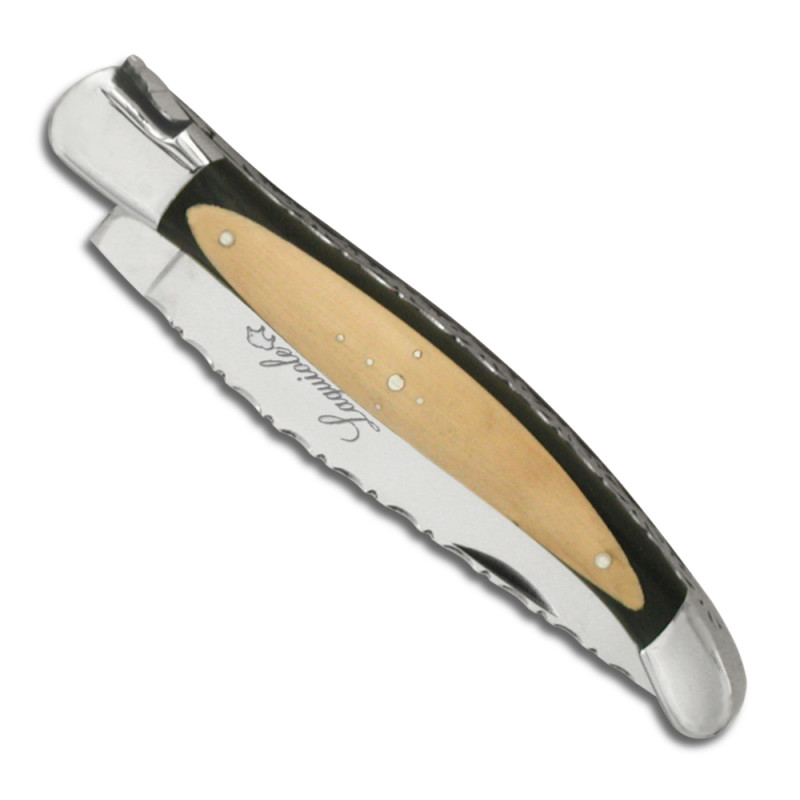Boxwood...
Boxwood is a symbol of immortality as it is evergreen.
Resistant and hardwearing, box used to be a favourite for making spinning-tops, combs, flutes, etc.
Due to its beauty and unrivalled softness, boxwood is also regularly chosen to make spoons, spatulas and other kitchen utensils, without forgetting, of course, knife handles.
Ebony...
Ebony is at home in low altitude mountain forests, on relatively poor terrain, but it also needs strong heat to grow well.
Ebony is found in Madagascar, Gabon and India. Its use goes back to ancient times, by Egyptians for example, who used to make small precious objects with it. In Europe, its use is documented as early as the twelfth century.
Its name is the etymological origin of the French word "ébéniste" for the craftsman who makes furniture.
Polished, gleaming, smooth, mat or shiny, ebony is such a heavy and dense wood that it doesn't float!








